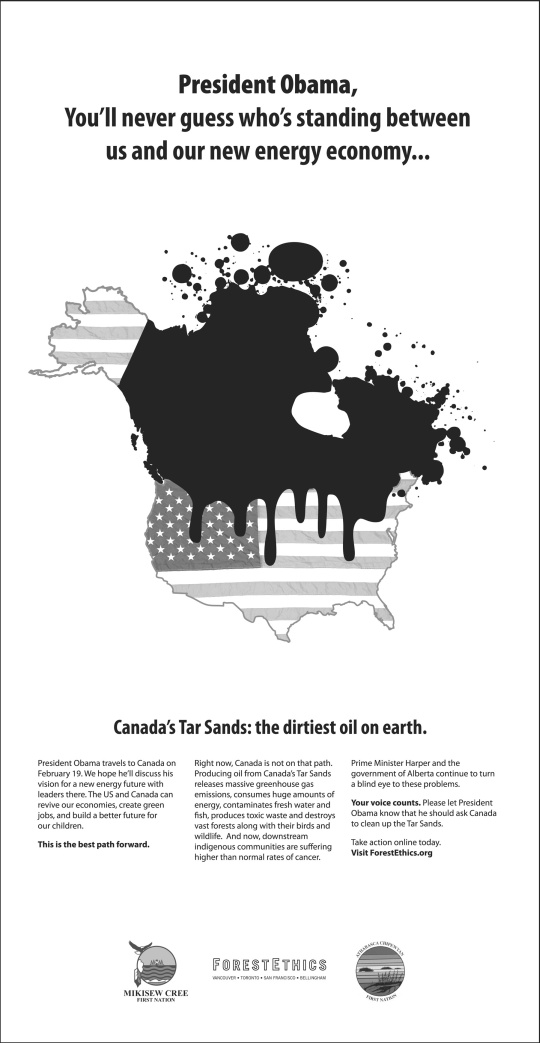On Wednesday Thursday, Barack Obama is heading up to Canada, where they’re getting nervous about growing protectionist and environmentalist sentiment in the U.S. Canadian PM Stephen Harper is widely expected to hype the special trade relationship between the two countries and push Obama for a climate partnership that spares tar sands oil — one of the biggest sources of greenhouse gas emissions in North America — from any carbon restrictions. (Hey, if the U.S. is going easy on coal, why shouldn’t Canada go easy on tar sands?)
To that end, during Obama’s visit, a group called the Canadian American Business Council (boasting such luminaries as Exxon Mobil and Shell Oil) will be running full-page ads in major U.S. publications, which say:
The countries share the largest energy trade relationship in the world, with Canada supplying more oil and natural gas to the U.S. than any other foreign supplier. Second only to Saudi Arabia in proven petroleum reserves, Canada is poised to securely supply even more oil and natural gas to the U.S., while industries on both sides of the border innovate and invest in technologies to enhance environmental responsibility.
"Enhance environmental responsibility," you say? Let’s take a look at a recent dispatch from Canada’s Pembina Institute:
Today the Pembina Institute submitted comments on a draft Alberta Government policy that would allow in situ oil sands operations to burn dirtier fuels, which would significantly increase the intensity and total amount of greenhouse gas pollution and air emissions from the sector. …
The policy would allow oil sands companies operating in situ projects to switch from burning natural gas to much dirtier, more carbon intensive fossil fuels such as raw bitumen or the waste from oil sands upgrading (petroleum coke and asphaltenes). Compared to conventional oil production, in situ oil sands production produces four times the greenhouse gas pollution per barrel when burning relatively cleaner natural gas. According to the Pembina Institute’s analysis, in situ oil sands operations burning petroleum coke without any mitigation would produce 66 per cent more greenhouse gas pollution than if the same operation were to burn natural gas. The Alberta Government document states that the policy may be expanded to include other industrial activities in the future.
Depends on what the meaning of "enhance" is, I guess.
U.S. group Forest Ethics is running the following full-page ad in response:



